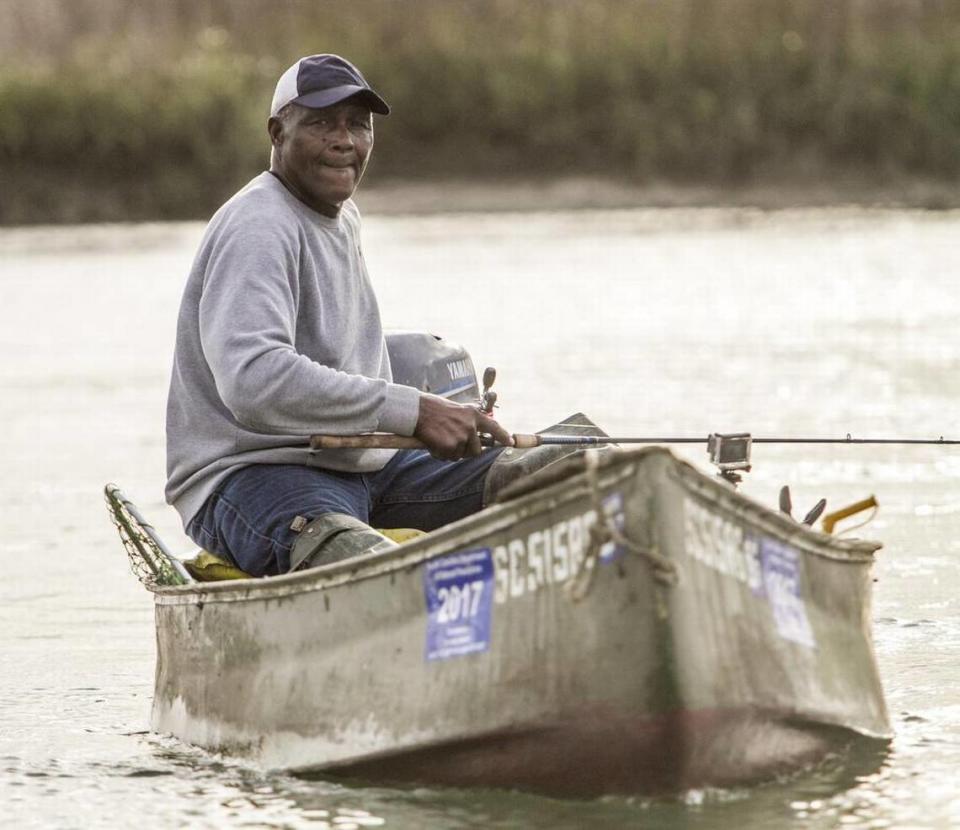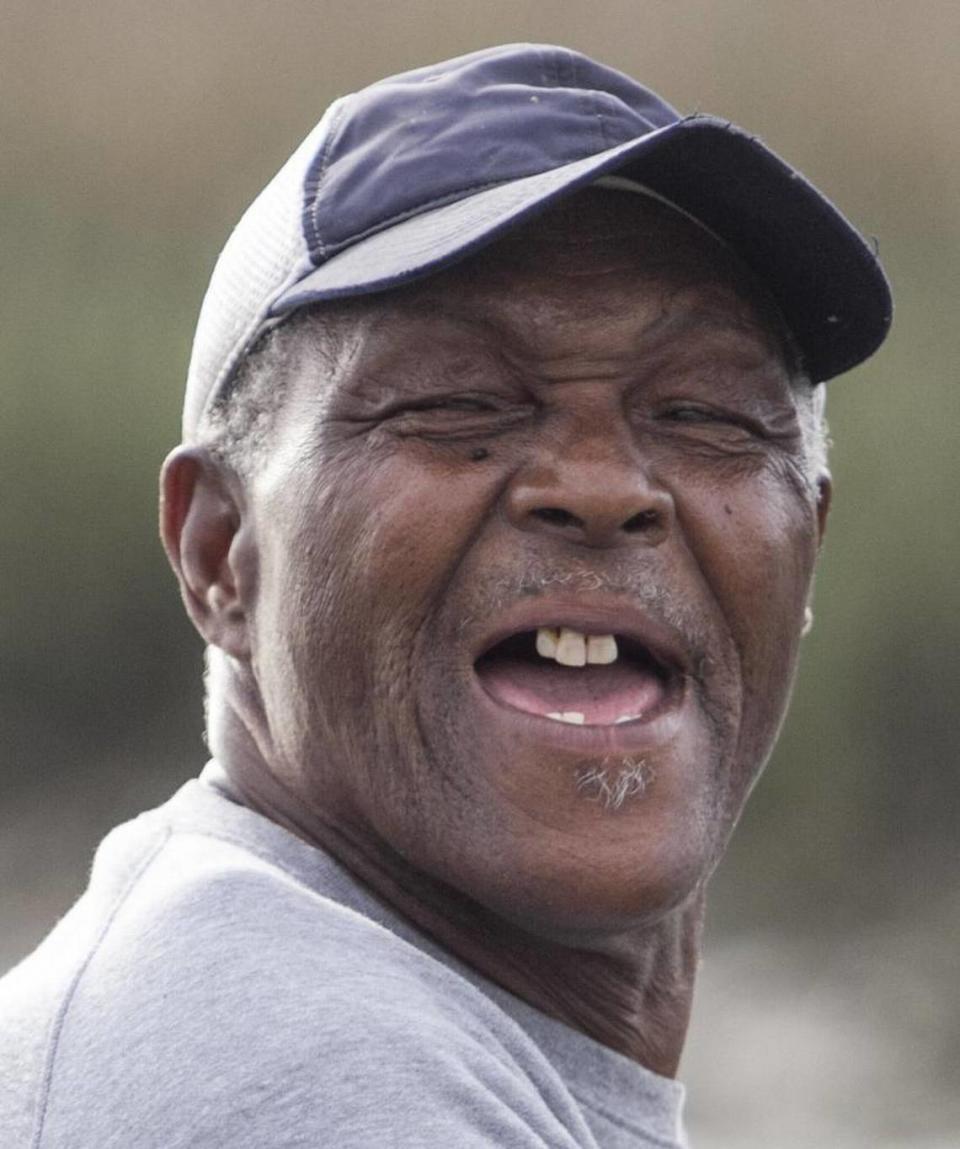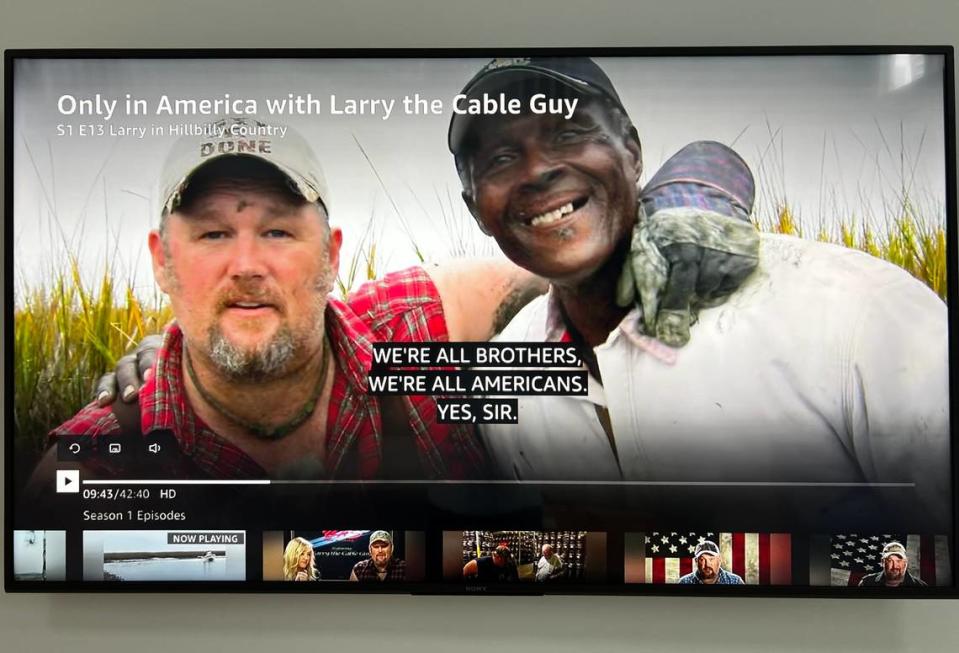Remembering Murrells Inlet’s ‘last original oysterman,’ Franklin Smalls, aka ‘Snakeman’
- Oops!Something went wrong.Please try again later.
- Oops!Something went wrong.Please try again later.
Franklin Smalls, aka “Snakeman,” dictated what should be said about him when he died.
“If I were to die today or tomorrow, there ain’t but three things I want a person to say about me,” Smalls said during a 2017 interview, standing knee deep in the Murrells Inlet pluff mud.
“He was a loud talking man, he was a man to his word, and a hard worker. You say those three things about me, you done summed me up, don’t say no more,” Smalls insisted.
Smalls, 74, died last Sunday, Feb. 25, 2024, at Grand Strand Hospital following a battle with brain cancer.
But despite Small’s thoughts about how he should be remembered, the Murrells Inlet community had a lot more they wanted to tell about the legendary Murrells Inlet oysterman known as “Snakeman.”

The last original oysterman
Every day during oyster season for more than 60 years, “Snakeman” plied the labyrinth of salt creeks in his motorized canoe, harvesting the shellfish from its banks.
Smalls was intrinsically tied to the South Carolina marsh lands which he said had provided for his people for generations. During that 2017 interview with The Sun news he said, “In the old days, Black people, we worked on farms - restaurants in the summer time. In the winter time, this the only income we had right here.”
“It’s got everything a poor person wants, right here,” he said of the fish, shrimp, shellfish, and crabs.
“I just love the smell of this mud!”
Snakeman claimed that he loved the work and could be heard singing opera between the ringing of his crowbar as he stooped to break oysters from their beds.
“Work is what keeps your health going,” he said at the time. “Laziness will drag you down quicker than hard work.”
Henry Ford, co-owner of Seven Seas Seafood where Smalls delivered his harvest of 10 to 15 bushels of oysters daily for over 20 years, called him “the last of the original oystermen” in this area.
That title was also placed on T-shirts that were sold at a recent charity fish fry held in the community to raise funds for Smalls’ medical bills.
Ford says Smalls was an inspiration to him early on when Smalls told him, “Ford, if you starve or go broke in Murrells Inlet, it’s said it’s your own damn fault.”

Not just a hard working man
During the off season, Smalls worked in the community mowing grass, doing yard work, and any and all odd jobs that the residents needed. But for most of them, he was much more than a handyman.
“He was our family,” Jane Spillane said of the man that began helping her late husband in the 1980s. Mickey Spillane, who was a well-known crime novelist, and Snakeman became close friends as they worked on household projects and could often be heard loudly and good-naturedly debating how to complete those tasks.
Spillane said Snakeman could do anything with his hands and do it cheerfully.
“He was the most cheerful person you ever met in your life,” she said. “He always had a smile and always laughed.”
He built the family’s Tiki Hut in their back yard and their seawall. And when her husband died, Smalls was invited to sit with the family at his funeral.
When her grandchildren visited, Spillane said Smalls would put on her husband’s old captain hat and take the kids for boat rides around the inlet.
She gave him her husband’s white Ford pick-up truck.
“He was our family,” she insists. “Sometimes it’s not blood relation, but how you feel about people.”
Why did they call him ‘Snakeman’?
In a 2017 interview, Franklin Smalls explained how he got the nickname “Snakeman” despite his fear of the serpents.
According to Smalls, he used to work all week, get dressed up and go out on the weekend. He would drink so much that he would eventually be crawling on the ground like a snake. Friends jokingly called him “Snakeman.”
Though he quit drinking soon afterwards and had not consumed alcohol for more than 40 years, the name stuck.

Larry the Cable Guy visits the Snakeman
In 2011, The History Channel filmed an episode of “Only in America” with Larry the Cable Guy in Murrells Inlet, S.C.
The celebrity comedian met the legendary oysterman and hilarity ensued.
In Season 1, episode 13, The Cable Guy and his crew can been seen floundering about in the Carolina marsh as Snakeman teaches them how to harvest the shellfish.
Snakeman even convinces Larry, who is uncharacteristically grossed out by the muddy bi-valves, to eat one raw - fresh from the shell.
The final days of Snakeman
Joyce Duncan Ravenell said her daughter introduced her to Snakeman 16-years ago because she thought the pair would hit it off.
“We started talking that night and we kept talking for 16 years,” she said describing her long-time boyfriend as “one of a kind” and a “good good man.”
Ravenell said on Smalls’ rare breaks from work, the couple liked to go to Harrah’s Cherokee Casino Resort in North Carolina where Smalls loved to play Keno. She related fond memories of those evenings when they would set up a speaker and microphone on the porch of their mountain cabin and sing together into the night.
On Saturday, Feb. 17, 2024, a charity fish fry was held for Smalls and the Murrells Inlet community came out to celebrate the man and support his efforts to fight his recent diagnosis of brain cancer.
Ravenell says that people from all walks of life and of every race came out to support Smalls and that he was honored by the event.
“He loved his people, and they loved him,” she said. “There was so much love in the air, I couldn’t sleep that night.”
Ravenell credits Smalls’ attitude with breaking down social and racial barriers, “He had a lot of manners and he gave respect to everyone,” she said. “He’d do anything for you if he could do it.”
On Sunday, Feb. 25, just a week after the fish fry, Ravenell rushed Smalls to Grand Strand Memorial Hospital with a nose bleed. She said one of her last memories was of him proudly telling the nurses stories about his life as a Murrells Inlet oysterman and laughing about his experience with Larry the Cable Guy.
Henry Ford says that Smalls had been working to pass on his knowledge of Murrells Inlet oystering to Hunter Smith, who will continue to work those same oyster leases in an attempt to carry on Smalls’ legacy.
According to Jane Spillane, “They’ll never be another one like him. The inlet will never be the same.”
Franklin Small’s funeral is being held by the McKnight-Fraser Funeral Home in Andrews, S.C. but plans for the service have not yet been announced.

